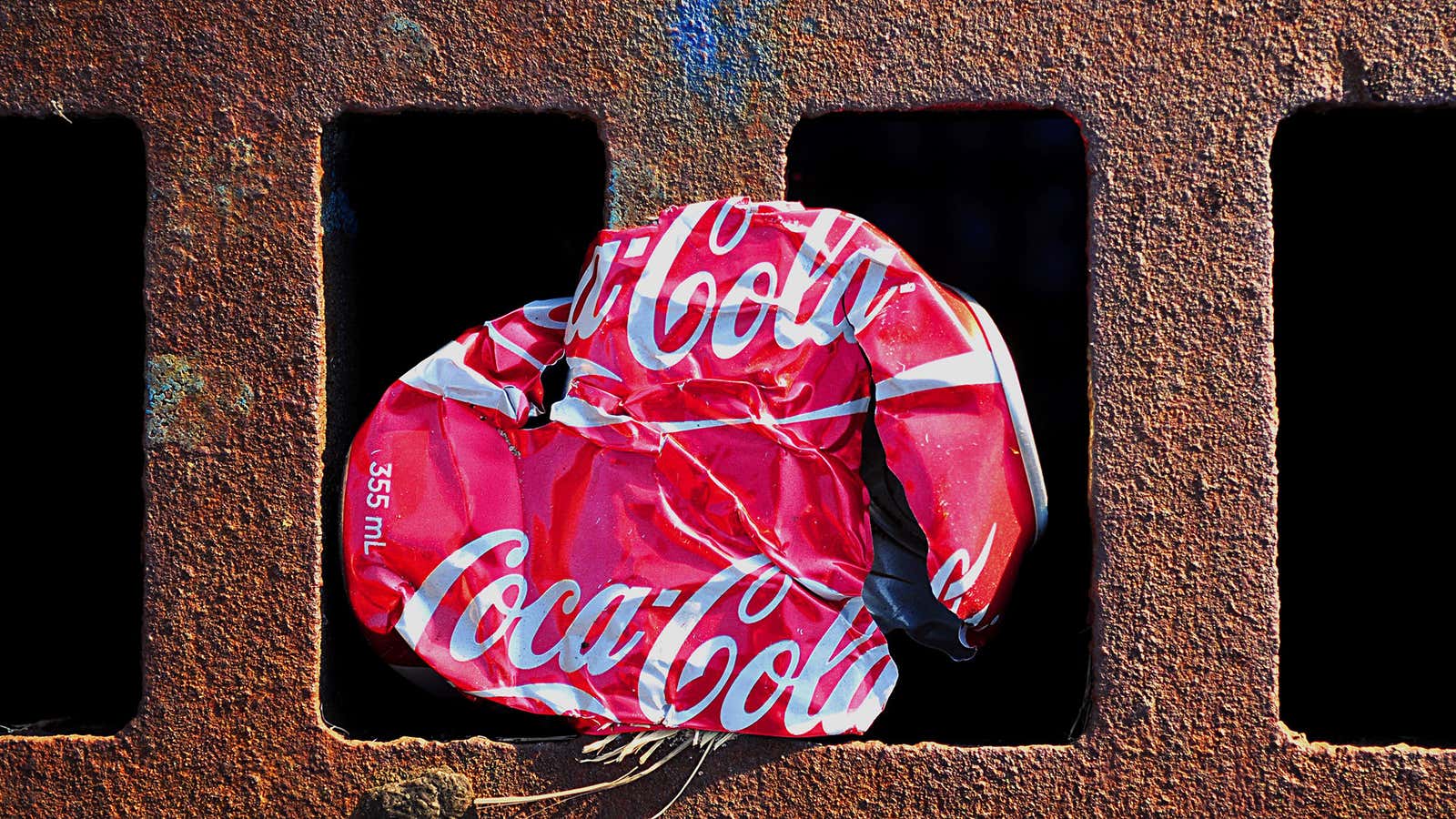As evidence mounts of the role of sugary drinks in causing obesity, type-2 diabetes, heart disease, and a host of other health problems, a tax on sodas and other sugar-packed drinks sounds like a good idea. Making them more expensive should reduce their consumption, advocates argue. Meanwhile, the food-industry lobbyists argue that there is no evidence such a tax would have the desired effect.
The latter argument is becoming harder to make. A new study looking at the effectiveness of Mexico’s tax on sugary drinks—implemented in January 2014—found that by December purchases had fallen by 12% compared to a year earlier.
Researchers from the University of North Carolina at Chapel Hill found that, on average, purchases of sugary drinks fell by 6% in 2014. Those who didn’t buy a sugary drink may have instead bought bottled water, a sector where sales have increased by 4%.
Mexico loves sugary drinks, and it is the world’s largest consumer per capita of Coca-Cola drinks. These numbers show in health data. In a recent study published in the journal Circulation, Mexico ranked highest among deaths attributed to consumption of sugar-sweetened beverages. Globally, the study noted, sugary drinks could be held responsible for 184,000 deaths caused by increased rates of type-2 diabetes, heart disease, and cancer.
The soda tax Mexico levied increased the price of these beverages by about 10%. Kelly Brownell, a public health expert at Duke University, thinks that a 20% increase would show even more of an effect.
The British Medical Association (BMA) agrees. In a new report—titled Food for Thought—the BMA argues the price of all non-alcoholic water-based beverages with added sugar should be increased by at least 20%.
Apart from Mexico, only Norway has a nationwide tax on sugary drinks. But the tide is turning in the US too. States of California and New York adopted such taxes in 2014, and a report in March 2015 by the top government committee on dietary guidance has recommended a 20% price increase on sugar-sweetened beverages.
Some have argued that soda taxes are regressive and disproportionately affect the poor. And in Mexico that is certainly the case. The average decline in sugar-sweetened beverages in the poorest section of the population was 50% more than the average. But that’s good news, Brownell argues, since obesity and diabetes are particularly problematic for this section of the population, because they struggle more to afford healthcare costs.
